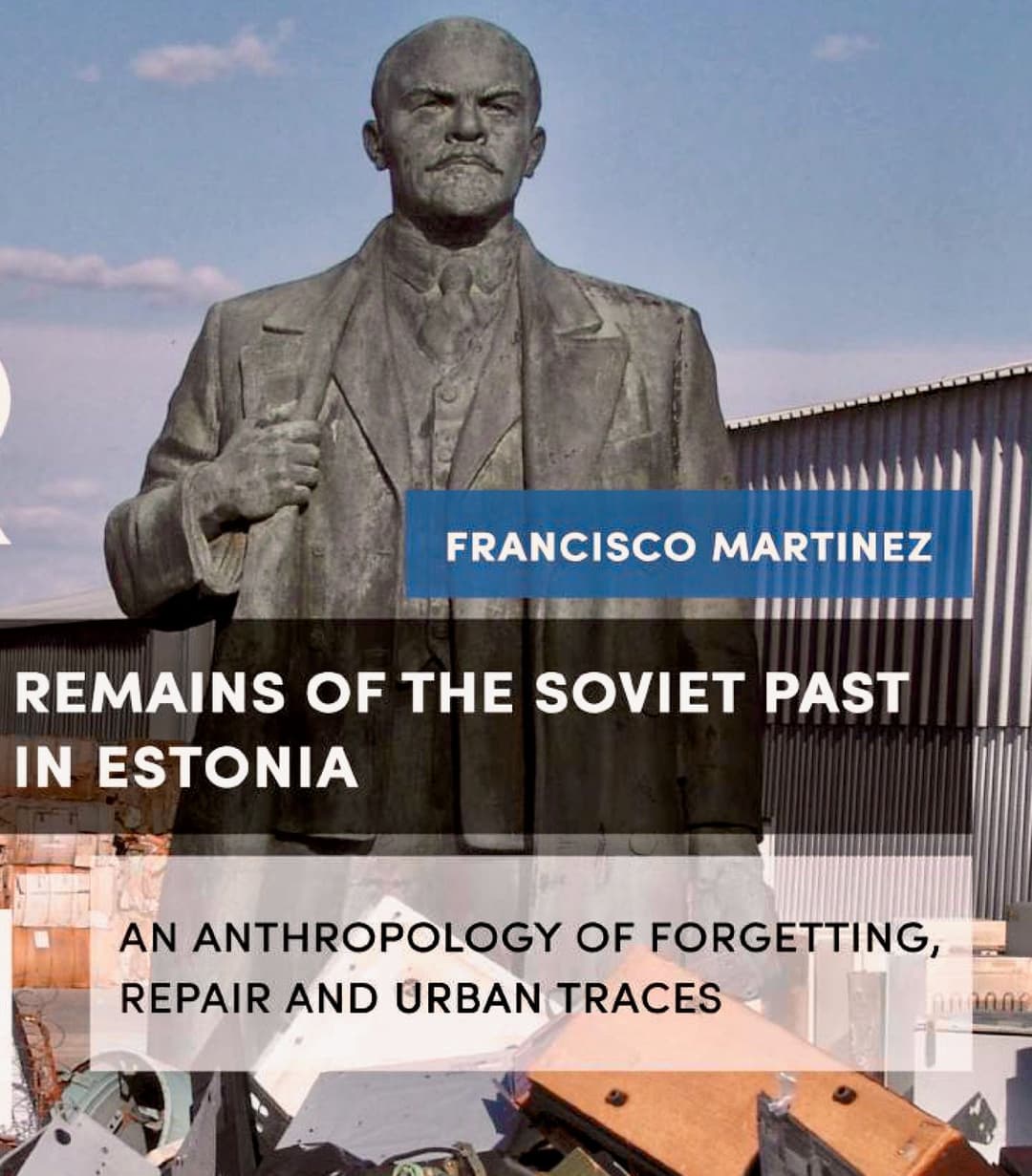
Remains of the Soviet Time in Contemporary Estonia
UCL Press 2018
This book addresses the material construction of temporal regimes after communism and what happens to legacies that do not find any continuation. In Estonia, a new generation that does not remember the socialist era and is open to global influences has grown up. As a result, the impact of the Soviet memory in people’s conventional values is losing its effective power, opening new opportunities for repair and revaluation of the past.
The ethnographic research brings together a number of sites of interest to explore the vanquishing of the Soviet legacy in Estonia: the railway bazaar in Tallinn where concepts such as ‘market’ and ‘employment’ take on distinctly different meanings from their Western use; Linnahall, a grandiose venue, whose Soviet heritage now poses difficult questions of how to present the building’s history; Tallinn’s cityscape, where the social, spatial and temporal co-evolution of the city can be viewed and debated; Narva, a city that marks the border between the Russian Federation, NATO and the European Union, and represents a place of continual negotiation of belonging; and the new Estonian National Museum in Raadi, an area on the outskirts of Tartu, that has been turned into a memory field. The study of all these places shows that national identity and historical representations can be constructed in relation to waste and disrepair too.
Praise
By adopting the tropes of ‘repair’ and ‘waste’, this book innovatively manages to link various material registers from architecture, intergenerational relations, affect and museums with ways of making the past present. Through a rigorous yet transdisciplinary method, Martínez brings together different scales and contexts that would often be segregated out. In this respect, the ethnography unfolds a deep and nuanced analysis, providing a useful comparative and insightful account of the processes of repair and waste making in all their material, social and ontological dimensions.
Victor Buchli, University College London
This book comprises an endearingly transdisciplinary ethnography of postsocialist material culture and social change in Estonia. Martínez creatively draws on a number of critical and cultural theorists, together with additional research on memory and political studies scholarship and the classics of anthropology. Grappling concurrently with time and space, the book offers a delightfully thick description of the material effects generated by the accelerated post-Soviet transformation in Estonia, inquiring into the generational specificities in experiencing and relating to the postsocialist condition through the conceptual anchors of wasted legacies and repair. This book defies disciplinary boundaries and shows how an attention to material relations and affective infrastructures might reinvigorate political theory.
Maria Mälksoo, University of Kent
In its examination of the material and social ‘afterlife’ of the Soviet world in contemporary Estonia, the ethnography is concerned less with how residual elements of communism are currently being invoked or commemorated, and more with how people are engaging with these remains through distinct yet interrelated acts of neglect, recovery and repair… Martínez is a deeply self‐reflexive anthropologist… He employs inventive methodologies throughout his fieldwork, interwoven with a range of analytical perspectives to construct a project that proves to be a unique combination of ethnography, cultural critique, reportage and personal memoir… Part of what adds to the originality of this analysis is that Martínez becomes an instigator of artistic and playful experiments that supplement his interviews, focus groups and practices of participant observation.
Alyssa Grossman, Social Anthropology 2019
By engaging, and not just observing, he deploys the kind of interpretive reflexivity that is critical to understand the research context, in other words, how ideas are appropriated anew, legacies passed on to younger generations, and new meanings ascribed to old materialities that persist in physical and affective landscapes”
Marcos F. Ferreira, Anthropological Journal of European Cultures, 2020
Laiapõhjalise, sageli väga pehme ja autorile justkui tee peale sattunud materjali pinnalt – olgu need siis vestlused oma partneri emaga, juhuslikud kohtumised ning mõttevahetused sõprade, tuttavate ja ka võhivõõrastega Eestis – on Martinez suutnud kokku panna uudse ja inspireeriva teose.
Tauri Tuvikene, Müürileht, 2018.
